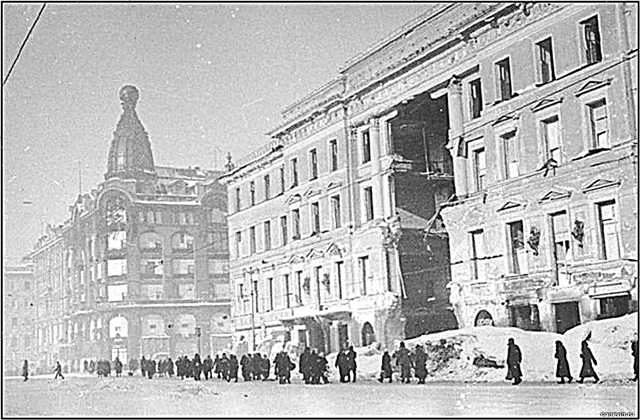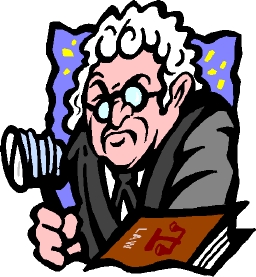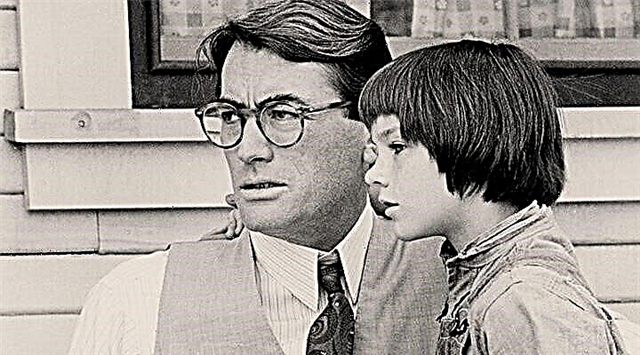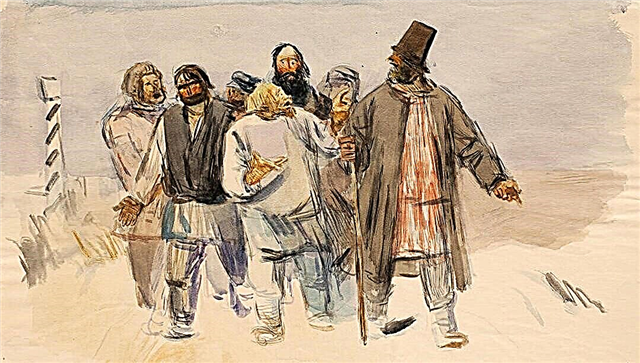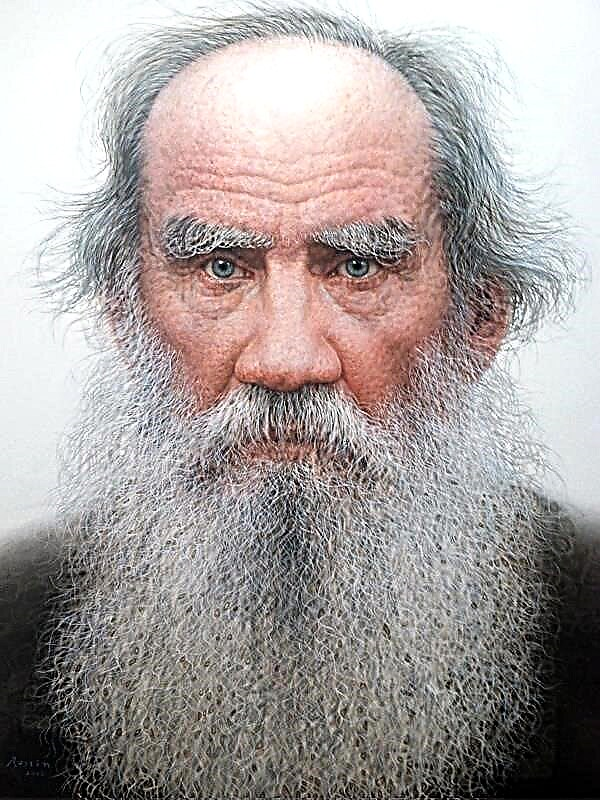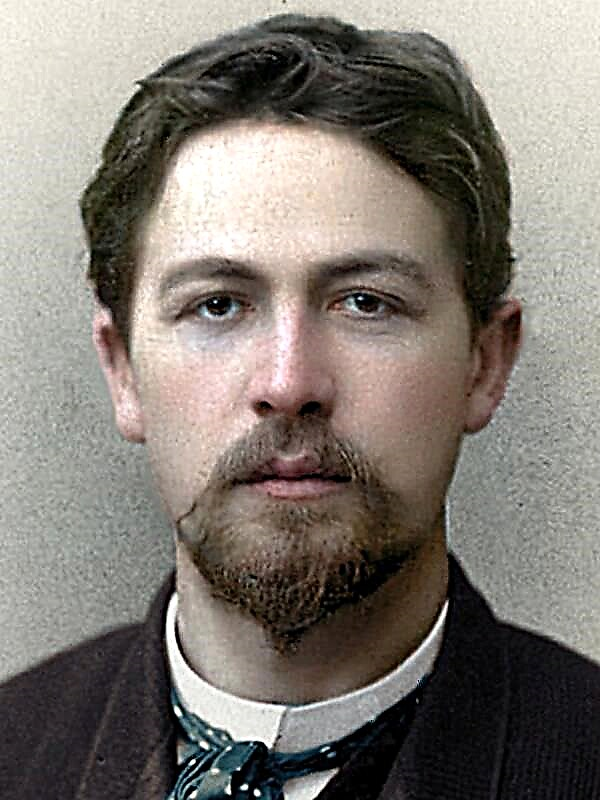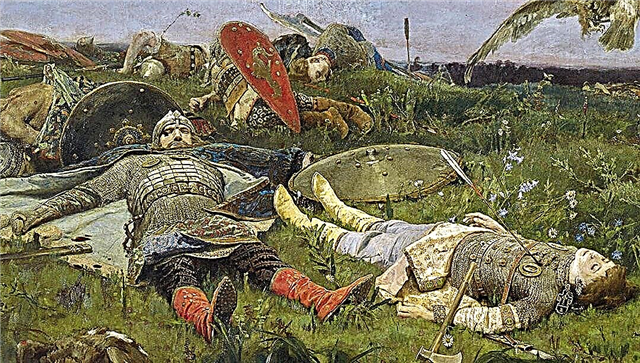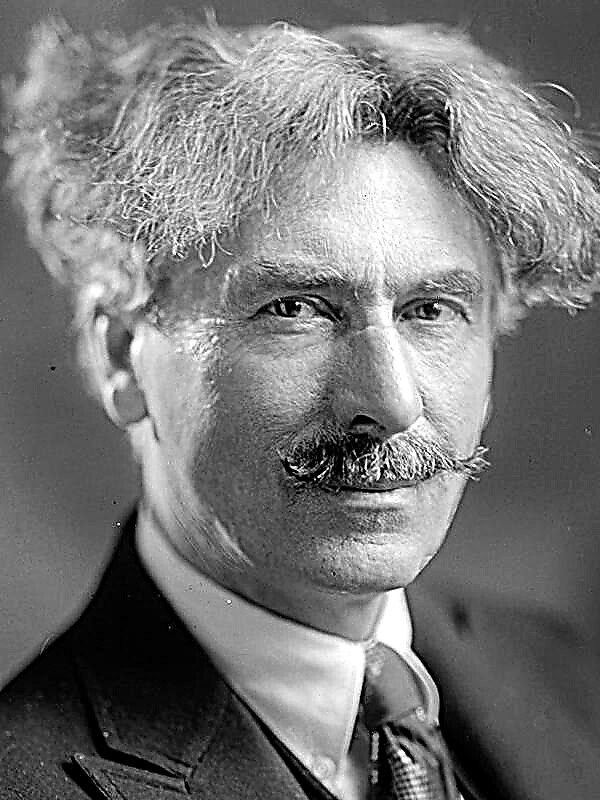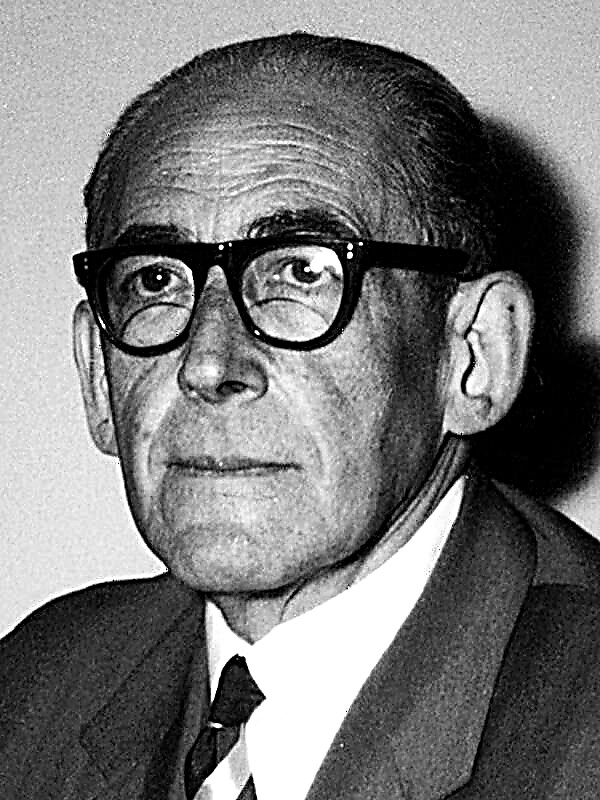Bessemenov Vasily Vasilievich, 58 years old, the foreman of the paint shop, marking a deputy in the city duma from the shop floor, lives in a prosperous house; Akulina Ivanovna, his wife; son Peter, a former student expelled for participating in illegal student gatherings; daughter Tatyana, a school teacher who sat up in brides; a pupil of Bessemenov Neil, a train driver in a railway depot; church singer Teterev and student Shishkin - parasites;
Elena Nikolaevna Krivtsova is a young widow of a prison keeper, renting rooms in the house, and Stepanida is a cook doing all the dirty work in the house with the help of a girl, Paul, a seamstress, the daughter of a distant relative, Bessemenov Perchikhin, a songbird merchant and a drunkard. In addition to them, Tsvetaeva, a young teacher, Tatyana’s girlfriend, is often in the house.
The play takes place in an atmosphere of constantly flaring up and calming down scandals between Bessemenov and his children. The father is dissatisfied with the disrespect for his children, as well as the fact that both still have not found their place in life. In his opinion, both of them became too "educated" and therefore proud. This prevents them from living. Tatiana just needs to get married, and Peter - it is profitable to marry and work to increase her father’s wealth. As the action develops, it becomes clear that children do not so much want to live “in a paternal way” as they simply cannot because of their weakened will, loss of interest in life, etc. Education really did not benefit them; it only confused them, deprived the will to live and strong philistine roots.
This is the main tragedy of the Bessemenov family. In the case of Peter, in the opinion of Teterev, who plays a peculiar role in the play, this tragedy should be decided in favor of his father: Peter will leave Krivtsova, who, while in love with her parents’ will, will inevitably follow the path of her father and will also become an exemplary tradesman. In the case of Tatyana, who is hopelessly in love with the Nile, already bound by mutual love with Paul, the question is open: most likely, Tatyana will remain an unhappy victim of the contradiction between her philistine roots and new trends of the time.
These trends are most clearly expressed by Neil, the most “progressive” hero and, obviously, the future socialist-revolutionary, as Bessemenov hints at. The Nile reflects the aesthetics of struggle and labor close to Gorky, which are inextricably linked. For example, he loves to forge, but not because he loves work in general, but because he loves, as it were, to fight metal, suppressing its resistance. At the same time, the will and determination of the Nile have a flip side: he is ruthless to Tatyana in love with him and to Bessemenov who raised him.
Along the way, the outskirts of the play unfold: Teterev’s love for Paul, in which he sees his last salvation from drunkenness and the boredom of life; the fate of Perchikhin, a man not of this world, living only with love for birds and the forest; the tragedy of Krivtsova, in love with life, but having lost her place in it. The most interesting of the secondary characters is Grouse. This man is too huge (both physically and spiritually) for that wretched life, whose owners so far are Bessemenov and the like. But he is unlikely to find a place in that life, the owners of which will be people like the Nile. His image is the image of the eternal exile of life.
The play ends on a tragic note. After a failed attempt to commit suicide, Tatyana understands her doom and uselessness among people. In the last scene, she falls on the keys of a piano, and an unstable loud sound is heard ...

